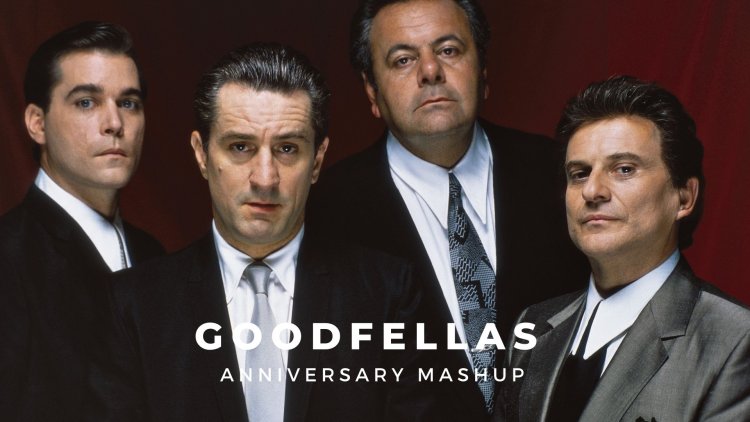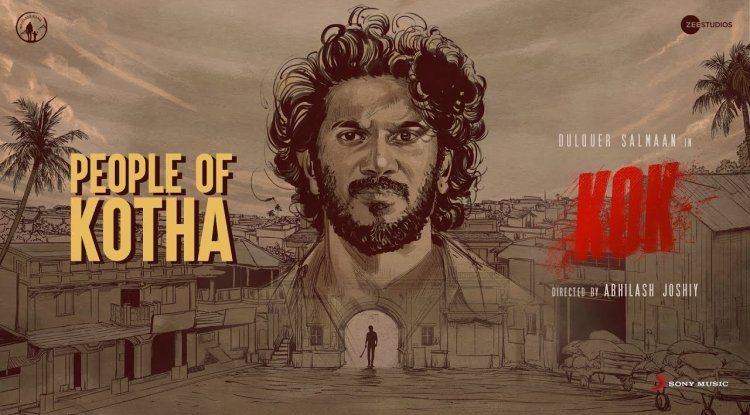'Goodfellas' (1990)
Directed by Martin Scorsese, Goodfellas is a gripping crime drama based on the true story of Henry Hill, a former mobster turned FBI informant. The film takes viewers on a captivating journey into the world of organized crime, exploring themes of loyalty, power, and the consequences of a life lived on the edge of the law. With its stellar cast, masterful direction, and compelling narrative, Goodfellas has become a cinematic masterpiece and a defining entry in the crime genre.

Plot
Goodfellas follows the rise and fall of Henry Hill (played by Ray Liotta), as he becomes involved with the Lucchese crime family in New York City. The film traces Henry's ascent through the ranks, his deepening involvement in criminal activities, and the eventual unraveling of his life. As the line between loyalty and betrayal blurs, Henry finds himself caught in a web of violence, deception, and the constant threat of exposure.
Powerful Performances
The performances in Goodfellas are nothing short of extraordinary. Ray Liotta delivers a career-defining performance as Henry Hill, capturing the character's ambition, charm, and descent into paranoia. Robert De Niro shines as Jimmy Conway, a seasoned mobster, while Joe Pesci delivers an unforgettable portrayal of the volatile and unpredictable Tommy DeVito. The chemistry between the cast members adds depth and authenticity to the film's portrayal of friendship, camaraderie, and the dark side of loyalty.
Scorsese's Direction
Martin Scorsese's direction in Goodfellas is impeccable. Known for his expertise in crafting crime dramas, Scorsese brings his signature style to the film, creating a dynamic and immersive experience for the audience. The film's pacing, editing, and use of voice-over narration enhance the storytelling, giving viewers a unique perspective into the mind of Henry Hill. Scorsese's meticulous attention to detail and his ability to capture the essence of the criminal underworld make Goodfellas a compelling and unforgettable cinematic experience.
Narrative Structure and Cinematography
Goodfellas employs a non-linear narrative structure that adds an extra layer of complexity to the storytelling. The film jumps back and forth in time, providing insights into different periods of Henry Hill's life and allowing the audience to piece together the events that shaped his journey. The cinematography, with its energetic camera movements and stylish visuals, further enhances the film's intensity and sense of immediacy.
Exploration of Themes
At its core, Goodfellas explores themes of loyalty, morality, and the allure of the criminal lifestyle. The film delves into the moral ambiguity of the characters, examining the choices they make and the consequences that follow. It offers a glimpse into the seductive nature of power and the destructive forces that can consume those who wield it. Goodfellas poses thought-provoking questions about the price one pays for a life of crime and the limits of loyalty in a world driven by violence and self-interest.
Legacy and Impact
Goodfellas has left an indelible mark on cinema and has become a seminal work in the crime genre. Its innovative storytelling, powerhouse performances, and Scorsese's masterful direction have garnered critical acclaim and a devoted fan base. The film's influence can be seen in subsequent crime dramas, as filmmakers continue to draw inspiration from its compelling characters, authentic portrayal of the criminal underworld, and its exploration of the human psyche.
Also Check Georgina’s statements provoked comments!
Conclusion
Goodfellas stands as a true cinematic achievement, showcasing Martin Scorsese's mastery as a director and the talent of its exceptional cast. With its engaging narrative, powerful performances, and exploration of complex themes, the film offers an unflinching and captivating portrayal of a life lived in the shadow of organized crime. Goodfellas remains a timeless classic and a must-watch for anyone seeking a thrilling and thought-provoking cinematic experience.




























